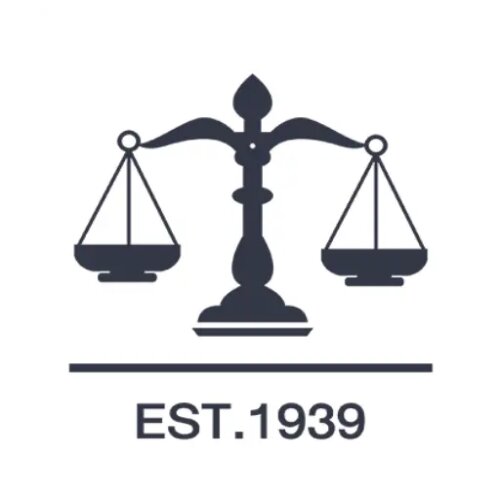Best Insurance Lawyers in Thailand
Share your needs with us, get contacted by law firms.
Free. Takes 2 min.
Or refine your search by selecting a city:
List of the best lawyers in Thailand
Legal guides written by Smart Legal Solutions:
- Main Legal Measures to Protect Foreign Investment in Thailand
- The importance of the geographical indications for the Thai economy
Legal guides written by Mahanakorn Partners Group Co., Ltd:
- Thailand Strengthens Anti-Money Laundering Laws with New Amendments
- Recent Updates to Thailand’s Long-Term Resident (LTR) Visa and SMART Visa Programs
- Managing Risks in Public-Private Partnership Projects
Thailand Insurance Legal Articles
Browse our 2 legal articles about Insurance in Thailand written by expert lawyers.
- How to File an Insurance Claim in Thailand?
- Here we share 5 basic steps to help you successfully file an insurance claim in Thailand.Particularly if you live abroad, filing an insurance claim can sometimes feel overwhelming. Still, with the correct direction, you will easily negotiate the procedure. This post will dissect the five basic stages to submit an... Read more →
- How to Write a Letter to an Insurance Company for a Claim in Thailand + Templates
- Following a systematic approach is extremely important while handling insurance claims in Thailand. This will serve to guarantee the effective and timely processing of your request. Writing a letter to an insurance company for a claim calls for straightforward interaction, presenting all of the necessary documentation, and following the company’s... Read more →
About Insurance Law in Thailand
Insurance law in Thailand is governed by the Civil and Commercial Code, as well as specific laws such as the Life Insurance Act and the Non-Life Insurance Act. These laws are designed to regulate the operation of insurance businesses and protect the rights of policyholders. Insurance in Thailand typically covers common areas including life, health, vehicle, home, and business. With an evolving legal landscape and growing economic challenges, understanding insurance law is crucial for both businesses and individuals.
Why You May Need a Lawyer
There are several situations where you may require legal assistance in insurance matters in Thailand. Common situations include disputes over policy claims, understanding complicated insurance terms, dealing with insurance fraud, negotiating with insurers, and ensuring that claims are paid promptly and in full. A lawyer can help you navigate these complex issues and protect your rights as a policyholder.
Local Laws Overview
The key aspects of local laws relevant to insurance in Thailand include the requirement for all insurance companies to be registered with the Office of Insurance Commission (OIC) and comply with regulations that ensure fair business operations. The laws stipulate the terms under which insurance policies should be drafted, ensuring clear contract terms and equitable treatment for policyholders. Additionally, there are specific provisions related to life, motor, health, and other types of insurance, detailing claim procedures, dispute resolution mechanisms, and more.
Frequently Asked Questions
What is the role of the Office of Insurance Commission (OIC)?
The OIC regulates, supervises, and promotes the insurance industry in Thailand. It ensures the stability of insurance companies and protects the rights of policyholders.
Can a foreigner purchase insurance in Thailand?
Yes, foreigners can purchase insurance in Thailand, including health, motor, and property insurance. Policy terms will typically need to be understood and negotiated, particularly if language barriers exist.
What should I do if my insurance claim is rejected?
If your claim is rejected, consult your policy documents for clarification on coverage. If resolution cannot be achieved directly with the insurer, consider seeking legal advice or lodging a complaint with the OIC.
Is car insurance mandatory in Thailand?
Yes, third-party liability insurance is mandatory for all vehicle owners in Thailand. Additional coverage options are available but not compulsory.
How long does it take to settle an insurance claim?
The duration varies depending on the complexity of the claim and the insurance company. However, under Thai law, insurers should process claims promptly.
What happens if an insurance company goes bankrupt in Thailand?
The OIC provides oversight and may intervene to protect policyholders. Insurance companies are required to maintain reserves to cover potential liabilities.
Can an insurance company change my policy terms?
Changes to an insurance policy require the consent of the policyholder. Always read communications from your insurance provider and seek clarification if needed.
How are insurance disputes resolved in Thailand?
Disputes can be settled through negotiation, mediation, arbitration, or court proceedings. Legal advice may help in determining the best course of action.
Are health insurance premiums tax-deductible in Thailand?
Yes, health insurance premiums up to a certain amount can be tax-deductible for individuals in Thailand, subject to specific conditions.
What are the penalties for uninsured drivers in Thailand?
Driving without the mandatory insurance can result in fines, and in the event of an accident, the uninsured driver may be liable for all damages.
Additional Resources
For further assistance, you may contact the Office of Insurance Commission (OIC) for regulatory guidance. Additionally, the Thai General Insurance Association and legal firms specializing in insurance law can be valuable resources. Educational resources such as online courses or workshops on Thai insurance laws are also beneficial.
Next Steps
If you need legal assistance with insurance in Thailand, consider consulting with a lawyer specializing in insurance law. Research their experience and reputation, and prepare relevant documents such as your policy and claim records before the consultation. Utilize resources like the OIC for initial inquiries or to file complaints. Ultimately, a knowledgeable legal professional can guide you through the complexities of insurance law in Thailand.
Lawzana helps you find the best lawyers and law firms in Thailand through a curated and pre-screened list of qualified legal professionals. Our platform offers rankings and detailed profiles of attorneys and law firms, allowing you to compare based on practice areas, including Insurance, experience, and client feedback.
Each profile includes a description of the firm's areas of practice, client reviews, team members and partners, year of establishment, spoken languages, office locations, contact information, social media presence, and any published articles or resources. Most firms on our platform speak English and are experienced in both local and international legal matters.
Get a quote from top-rated law firms in Thailand — quickly, securely, and without unnecessary hassle.
Disclaimer:
The information provided on this page is for general informational purposes only and does not constitute legal advice. While we strive to ensure the accuracy and relevance of the content, legal information may change over time, and interpretations of the law can vary. You should always consult with a qualified legal professional for advice specific to your situation.
We disclaim all liability for actions taken or not taken based on the content of this page. If you believe any information is incorrect or outdated, please contact us, and we will review and update it where appropriate.
Browse insurance law firms by service in Thailand
Thailand Attorneys in related practice areas.
Browse insurance law firms by city in Thailand
Refine your search by selecting a city.















